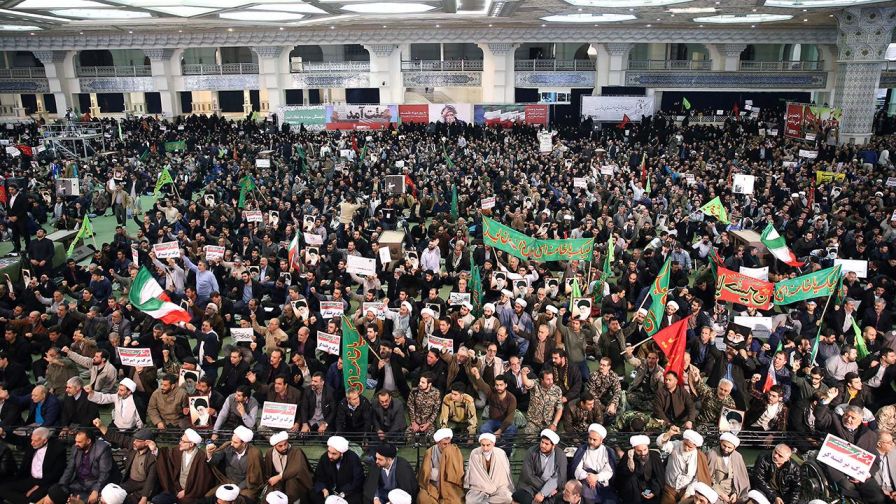By Joseph Braude
As of this writing, Iranian state media has reportedly acknowledged that at least 20 people have died in clashes across the country between demonstrators and state security forces. Hundreds of others have been arrested in the protests, which are now the largest since the country’s so-called “green revolution” following the 2009 presidential election. Iranian authorities appear to have been caught off-guard. Initial, measured statements appeared to suggest a policy of permitting the protestors to vent legitimate frustrations. But as calls of “death to the dictator” and profound opposition to Iranian intervention in Arab lands were publicly and repeatedly expressed, the regime’s response has taken a darker and more paranoid tone. Supreme Leader Ayatollah Khamenei has predictably sought to discredit the protestors as foreign stooges: “In recent days,” he was quoted as saying, “enemies of Iran used different tools including cash, weapons, politics and intelligence services to create troubles for the Islamic Republic.”
Western powers appear to be divided on how to respond. In Europe, a policy of mercantile engagement with the Tehran regime has apparently engendered a reluctance to declare solidarity with the protestors. Thus Catherine Ray, Spokesperson for the EU Foreign Affairs and Security Policy, has Tweeted tepidly as follows: “The EU is following the demonstrations in Iran. We have been in touch with the Iranian authorities. We expect that the right to peaceful demonstration and freedom of expression will be guaranteed following President Rohani’s public statements. …” The statement contrasts sharply with those of President Trump and Vice President Pence. On January 2, Trump tweeted: “The people of Iran are finally acting against the brutal and corrupt Iranian regime. All of the money that President Obama so foolishly gave them went into terrorism and into their “pockets.” The people have little food, big inflation and no human rights. The U.S. is watching!” Vice President Pence, reinforcing the clear signal of a shift in policy from the previous administration, followed up with the following Tweet: “As long as @RealDonaldTrump is POTUS and I am VP, the United States of America will not repeat the shameful mistake of our past when others stood by and ignored the heroic resistance of the Iranian people as they fought against their brutal regime. The bold and growing resistance of the Iranian people today gives hope and faith to all who struggle for freedom and against tyranny. We must not and we will not let them down.” Israeli Prime Minister Benjamin Netanyahu has also made a statement of full-throated support for the demonstrators.
The question of American policy toward the Iranian protests has meanwhile become a subject of debate in Washington and in the media. The New York Times initially provided a platform for stalwarts of the Obama Administration to make the case for Obama-era policies. An op-ed by Philip Gordon, former assistant secretary of state and White House coordinator for the Middle East during the Obama administration, was titled “How Can Trump Help Iran’s Protestors? Be Quiet” — a fair summary of the substance of his prescription. Statements by former Secretary of State John Kerry and others carried a tone of obscurantism and studiously avoided a moral judgment that could be construed as casting the regime in a bad light. But on January 2, the Times granted Reuel Marc Gerecht, a former CIA Iranian targets officer, the opportunity to criticize this political strand and warn, “The Worst Thing for Iran’s Protestors? U.S. Silence.” In the Washington Post, Michael Singh of the Washington Institute for Near East Policy articulated the beginnings of an approach to supporting the protestors. In essence, he calls for sanctioning the regime in the event of a brutal crackdown, and furthering protestors’ opposition to Iranian expansionism by punishing the Iranian regime for its interventions in the broader Middle East.













